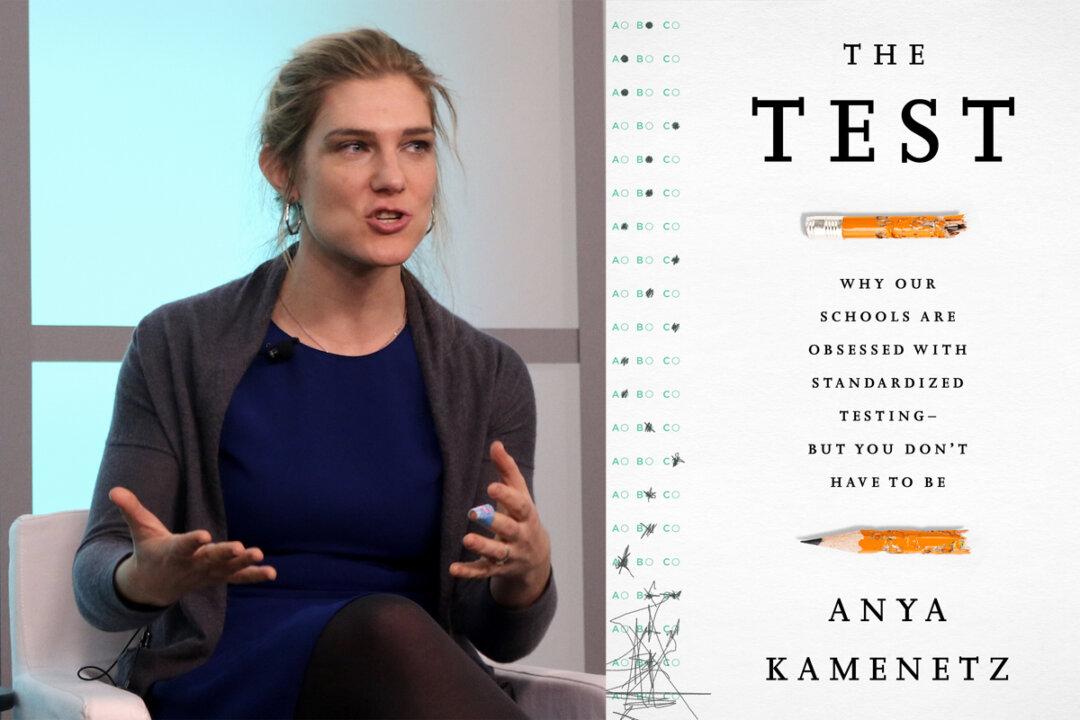WASHINGTON—The measure of students, teachers, schools, and districts increasingly hinge on test scores. Outcomes can be upsetting and dysfunctional—students are held back a grade, teachers denied tenure or even fired, principles removed, schools sanctioned or closed.
Districts either comply with the testing regimen or lose federal education aid dollars.
“No country in the world administers as many standardized tests as the United States or uses them for the same purposes—particularly to grade and punish teachers and schools,” states Anya Kamenetz, author of “The Test: Why Our Schools are Obsessed with Standardized Testing—But You Don’t Have to Be.”
She lays out the problem in the second paragraph: “As an education writer for the past twelve years and as a parent talking to others parents, I’ve seen how high-stakes standardized tests are stunting children’s spirits, adding stress to family life, demoralizing teachers, undermining schools, paralyzing the education debate, and gutting our country’s future competitiveness.”




